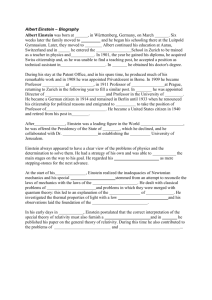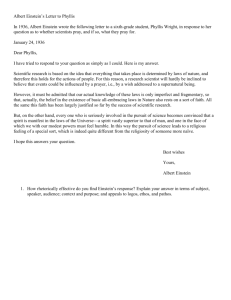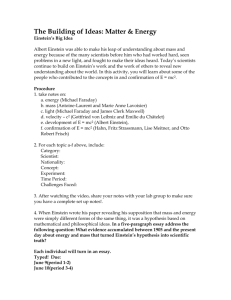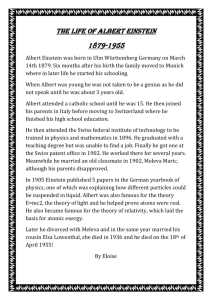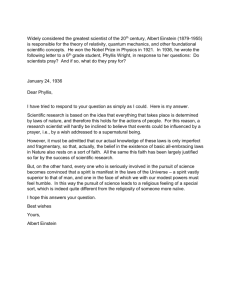917 Address to Congress on Women's Suffrage
advertisement
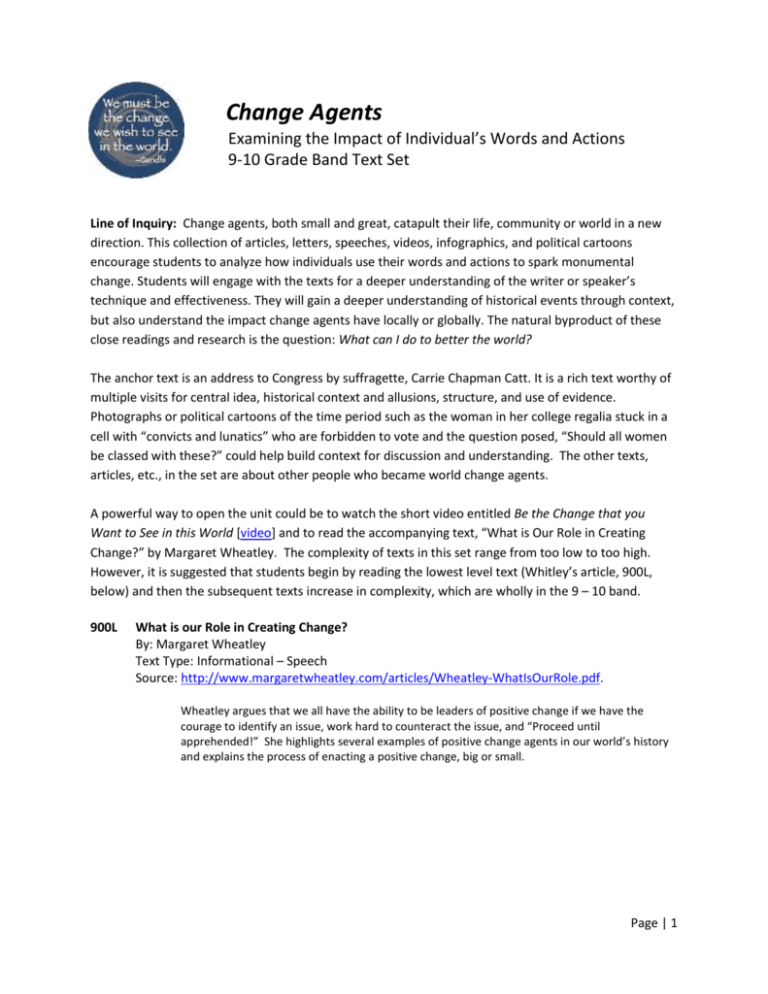
Change Agents Examining the Impact of Individual’s Words and Actions 9-10 Grade Band Text Set Line of Inquiry: Change agents, both small and great, catapult their life, community or world in a new direction. This collection of articles, letters, speeches, videos, infographics, and political cartoons encourage students to analyze how individuals use their words and actions to spark monumental change. Students will engage with the texts for a deeper understanding of the writer or speaker’s technique and effectiveness. They will gain a deeper understanding of historical events through context, but also understand the impact change agents have locally or globally. The natural byproduct of these close readings and research is the question: What can I do to better the world? The anchor text is an address to Congress by suffragette, Carrie Chapman Catt. It is a rich text worthy of multiple visits for central idea, historical context and allusions, structure, and use of evidence. Photographs or political cartoons of the time period such as the woman in her college regalia stuck in a cell with “convicts and lunatics” who are forbidden to vote and the question posed, “Should all women be classed with these?” could help build context for discussion and understanding. The other texts, articles, etc., in the set are about other people who became world change agents. A powerful way to open the unit could be to watch the short video entitled Be the Change that you Want to See in this World [video] and to read the accompanying text, “What is Our Role in Creating Change?” by Margaret Wheatley. The complexity of texts in this set range from too low to too high. However, it is suggested that students begin by reading the lowest level text (Whitley’s article, 900L, below) and then the subsequent texts increase in complexity, which are wholly in the 9 – 10 band. 900L What is our Role in Creating Change? By: Margaret Wheatley Text Type: Informational – Speech Source: http://www.margaretwheatley.com/articles/Wheatley-WhatIsOurRole.pdf. Wheatley argues that we all have the ability to be leaders of positive change if we have the courage to identify an issue, work hard to counteract the issue, and “Proceed until apprehended!” She highlights several examples of positive change agents in our world’s history and explains the process of enacting a positive change, big or small. Page | 1 Anchor Text 1240L 1917 Address to Congress on Women’s Suffrage By: Carrie Chapman Catt Text Type: Informational – Speech The speech challenges members of Congress to pass the Federal Suffrage Amendment and influence states to ratify it. Her persuasive appeal is wrought with allusion and powerful imagery, drawing from American ideals and heroes as her leverage. Malcolm Gladwell 1140L Malcolm Gladwell’s ‘Outliers’ Text Type: Informational Source: ABC News http://abcnews.go.com/WNT/video?id=6324412 In this video, author Malcolm Gladwell talks about his book, Outliers, wherein he investigates ordinary people who have accomplished extraordinary success, like Bill Gates. His theory is that it is not just that these people were really bright, but that they were able to see the opportunities that were available and seize them. Albert Einstein 1360L Einstein Letter to FDR By: Albert Einstein Text Type: Informational Source: PBS http://www.pbs.org/wgbh/americanexperience/features/primary-resources/truman-ein39/ In this letter from Albert Einstein to President Franklin Delano Roosevelt, Einstein attempts to persuade Roosevelt to pursue the construction of nuclear bombs. 1180L Leaflets warning Japanese of A-Bomb, 1945 Text Type: Informational Source: PBS http://www.pbs.org/wgbh/americanexperience/features/primary-resources/truman-leaflets/ These leaflets, dropped on cities in Japan, warn Japanese civilians about the atomic bomb, the first of which was dropped on August 6, 1945. Page | 2 1460L Albert Einstein Calls for Peace and Social Justice in 1945 Text Type: Informational Source: Open Culture http://www.openculture.com/2013/06/listen_as_albert_einstein_calls_for_peace_and_social_j ustice_in_1945.html After World War II, Einstein is appalled at the way that countries were acting toward one another. He stated that, “Territorial questions and arguments of power, obsolete those they are, still prevail over the essential demands of common welfare and justice.” Alfred Nobel 1330L Alfred Nobel: Lord of Dynamite, Patron of Peace Text Type: Informational Source: Vision.org http://www.vision.org/visionmedia/biography-alfred-nobel/565.aspx This short biographical article details the contributions of Alfred Nobel and why he instituted the annual Nobel Peace Prize. Nelson Mandela 1640L History of Nelson Mandela Source: History.com http://www.history.com/topics/nelson-mandela Even though the complexity of this text is high for the 9-10 grade band, the article is supported by the video on the same page. When reading, the video plays on the same page, highlighting the important content of the article. Both the article and the video tell about how Nelson Mandela became a positive change agent in South Africa, despite seemingly insurmountable obstacles. 1380L Glory and Hope Speech By: Nelson Mandela Source: University of Pennsylvania http://www.africa.upenn.edu/Articles_Gen/Inaugural_Speech_17984.html This is the speech that Nelson Mandela gave in Pretoria on May 10, 1994, upon becoming president of South Africa. During the speech, he is hopeful for the future of South Africa without Apartheid. Page | 3

